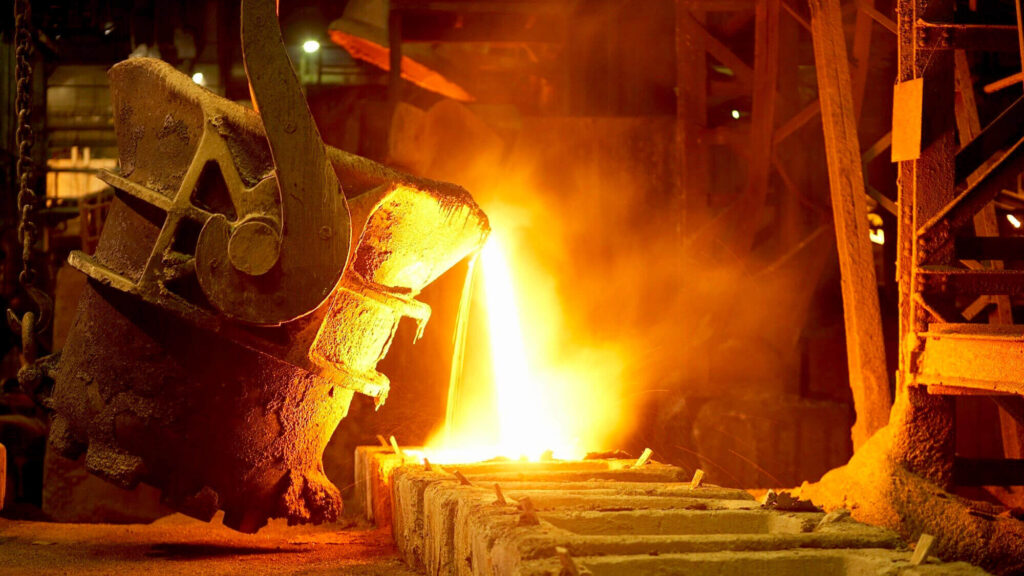The Online Guide to the Namibian Economy
The Online Guide to the
Namibian Economy

Powered by
The Online Guide to the
Namibian Economy
Powered by

Manufacturing
Historically, Namibia’s small domestic market and membership of the Southern African Customs Union, which means it is fully exposed to South Africa’s larger and better established manufacturing industry, has pointed to the need for special measures to be taken to stimulate the domestic manufacturing sector. Over the years a variety of measures have been adopted to compensate for this with varying degrees of success.

Ministry of Industrialisation and Trade and Public Agencies
The Ministry of Industrialisation and Trade was the key policy-making institution for the industry before it was split up and merged with the Ministry of International Relations and Trade and the Ministry of Industrialisation, Mines and Energy in March 2025. Namibia’s last formal industrial policy was published in 2012 and this was supplemented by Growth At Home: Namibia’s Strategy for Industrialisation in 2013. At present there are no special tax or other incentives for manufacturers. Before the recent restructuring, the Ministry was consulting on draft legislation to revise the Namibia Investment Promotion Act of 2016 and on Special Economic Zones.
The Ministry oversaw a number of public agencies, some of which cover the entire economy but others are focussed on the manufacturing sector. The former includes the Business and Intellectual Property Authority, which is responsible for business registrations and intellectual property, the Namibia Standards Institution, which is responsible for developing and enforcing quality standards across the economy, and the Namibian Competition Commission, responsible for applying competition policy. All are statutory bodies and classified as public enterprises. The Namibia Industrial Development Agency is a commercial public enterprise formed by the merger of the Namibia Development Corporation and Offshore Development Company in 2016 whose objective is to advance Namibia’s industrialisation agenda by investing in projects and providing serviced industrial land in towns across Namibia. The Namibia Trade Forum is a government-sponsored forum which promotes dialogue on trade issues between government and the private sector. The Walvis Bay Corridor Group exists to promote trade corridors across Southern Africa based around Namibia’s port at Walvis Bay. These corridors aim to become an integrated system of well-maintained tarred roads and rail networks from the Port of Walvis Bay via the Trans Kalahari, Walvis Bay-Ndola-Lubumbashi Development Corridor, Trans-Cunene and Trans-Oranje Corridors providing landlocked SADC countries with access to transatlantic markets.
Private Sector
Namibia’s manufacturing sector consists of a wide variety of companies involved in meat, grain, fish and food processing, tanning and leatherwork, brewing, cement manufacturing, smelting and metal refining, and diamond cutting and polishing. Major manufacturers include Meatco, Beefcor, Namib Mills, Bokomo, the Ohtlhaver & List Group, Seawork Fish Processors, Namibia Breweries (bought by Heineken in 2023), Ohorongo Cement, Dundee Precious Metals (bought by Sinomine Resource Group in 2024), and NDTC sightholders. The Namibia Manufacturers Association is an umbrella body representing the interests of manufacturers.
[this is needed for pages which display statistics and charts but is not displayed unless you are logged in]
DATA - Sectoral Breakdown of GDP
| Sector | gdp | year |
|---|---|---|
| Livestock Farming | 2.5 | 2024 |
| Crop Farming | 2.1 | 2024 |
| Fishing | 2.7 | 2024 |
| Mining | 13.3 | 2024 |
| Manufacturing | 10.6 | 2024 |
| Electricity and Water | 3.6 | 2024 |
| Construction | 1.4 | 2024 |
| Trade | 11.4 | 2024 |
| Hotels | 1.6 | 2024 |
| Transport and Storage | 3.5 | 2024 |
| ICT | 1.1 | 2024 |
| Financial Intermediation | 7.7 | 2024 |
| Real Estate | 4.7 | 2024 |
| Other Services | 3.0 | 2024 |
| Public Administration | 8.6 | 2024 |
| Education | 9.1 | 2024 |
| Health | 3.3 | 2024 |
| Private Households | 0.7 | 2024 |
| Taxes less subsidies | 9.4 | 2024 |